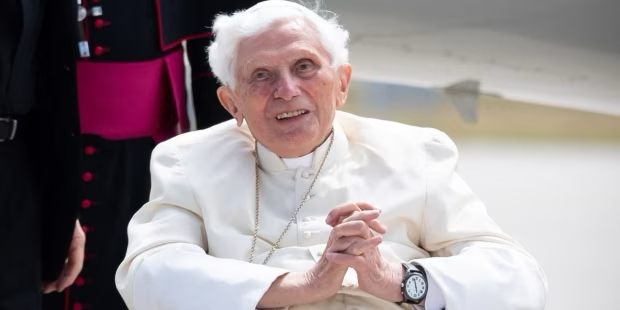Newman
-
Letter to Pope Francis regarding the Mass
Preamble This letter to Pope Francis was first written for The Roman Way 1 to bear witness to the beauty and efficacy of the traditional Roman rite and to bear witness to the shock caused by the motu proprio, Traditionis custodes, published on July 16, 2021 by Pope Francis. Holy Father, I was extricating myself from a terrible Continue reading
-
Benedict XVI in Paradise!

—Is it morning or evening? My breath stopped, then started again. As if it were giving signs of a defect. It was leaving me. The pneuma was leaving me. I breathed that I was ready. My God, how I love it! But, the breath returned, as if it had gone out on an errand. The memores is out. Continue reading
-
Christian testimony
When I started this blog, the idea of writing about the liturgy quickly came to me. Not to claim expert status, but to share my experience about what represents the heart of a Christian's life. So there were two paths that had to merge: I had to tell the Continue reading
-
Newman and Socrates
The links between ancient Greek philosophy and Christianity are numerous. The most famous of the Greek precepts: Gnothi Seauton, "Know thyself," inscribed at Delphi, retains a certain mystery. Another part of the phrase has remained with us: "But not too much"... Know thyself... But not too much! Plato leads Socrates to reflect on the Delphic formula in Continue reading
Catholicism , ethics , ancient Greece , history , Newman , Notre-Dame du Lys , Plato , politically correct , priest , religion , Socrates , Zenit -
The path of God passes through our humanity…
Extraordinary passage from Blessed Cardinal Newman: By sinning, by suffering, by correcting ourselves, by improving ourselves, we advance toward the truth through the experience of error; we obtain success through failure. We do not know how to act well except after having acted badly. […] We know what is good not from Continue reading